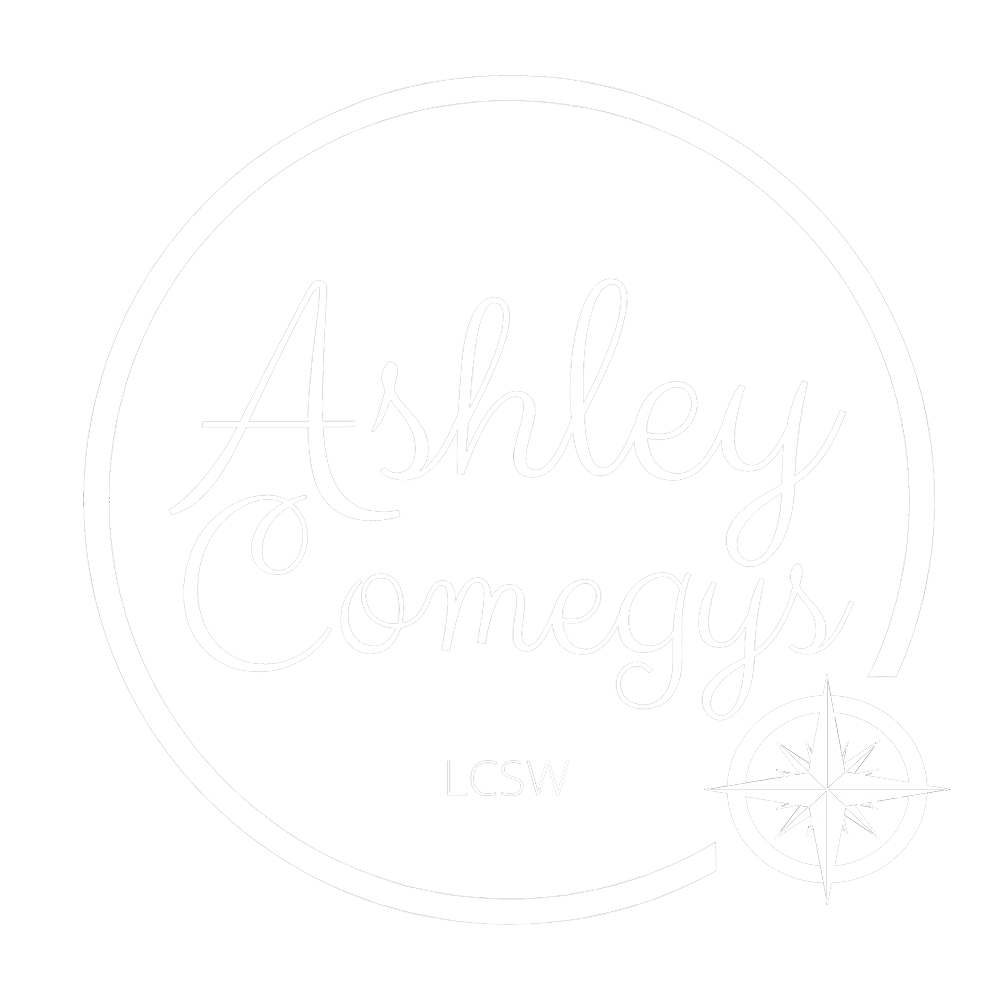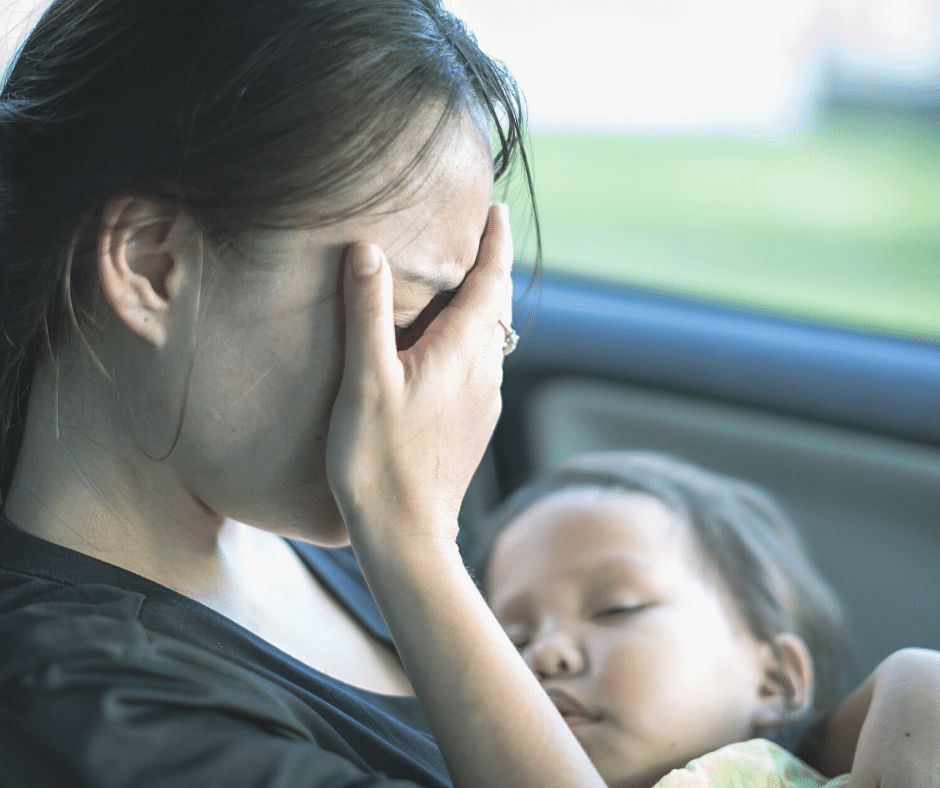When you imagined meeting your baby for the first time, you had visions of tears of joy and all-encompassing feelings of love for your little one. You believed you would hold that tiny little being, wrapped sweetly in a blanket, and immediately be head over heels in love. You expected to feel connected to this baby and be excited for her arrival. But it’s been several weeks since you brought your new baby home and you’re still waiting to feel that overwhelming sense of love and connection with your bundle of joy.
Life With A New Baby is Hard
Each day feels overwhelming and dark, like there’s a cloud hanging over you. Instead of feeling happy and overjoyed by your baby’s arrival, you feel isolated and alone. And while you knew having a newborn was going to be tiring, you feel completely exhausted, even when you’re able to sneak in a nap. Before baby, you enjoyed spending time with friends or watching your favorite show at the end of the night, but nothing sounds enjoyable anymore. Most days, you find yourself crying easily and you don’t know why.
Even though your baby needs you, you still don’t feel connected to this new little one. You keep your thoughts and feelings to yourself because you’re worried that other moms will judge you. You begin to believe what you’ve been repeating in your head: “I’m not a good mom.”
There is a Difference between Postpartum Depression, Postpartum Anxiety, and the post baby blues
Before your baby arrived, you found yourself sometimes worrying about how you would care for and protect this new life, but since your baby was born, the worry has become all-consuming. You feel on edge, and even though you’re exhausted, your body won’t let you rest. You’re easily irritated by things around you that typically wouldn’t bring you to the point of rage, but now you find yourself yelling and going off on your partner over the littlest things.
Leaving the house feels extremely overwhelming. The stress of a trip to the grocery store or a doctor’s appointment is enough to just keep you at home in your safe space. You struggle to let even your spouse or other family members help you with the baby. And, you have a hard time trusting others’ ability to care for your child. No matter what you do, you can’t shake the worry and fear that something is going to happen to you or your child. Your mind fills easily with racing thoughts and you lie awake every night wishing you could just fall sleep. You ask yourself, “Am I the only mom who feels like this?”
Postpartum Depression and Postpartum Anxiety is Common Amongst Women Who Have Just Given Birth
Can you identify with any of these thoughts and feelings? If so, you’re not alone and you don’t have to go through this by yourself! In fact, research shows that one out of every five to seven women experience postpartum depression and anxiety after having a baby. It’s been several months or even a year since you gave birth. However, you could still be dealing with postpartum depression and anxiety.
What are the symptoms of postpartum depression?
Feeling overwhelmed “I can’t cope with this”
Lack of feelings or connectedness toward your baby
Inability to take care of yourself or your family
Withdrawing from social interaction and isolating
Irritability or agitation
Can be accompanied by feelings of anxiety
Physical symptoms such as headaches, backaches, digestive issues
A sense that “this doesn’t feel like me”
May experience thoughts of self harm
What are the symptoms of postpartum anxiety?
Constant, excessive anxiety often about your own health or your baby’s health
Struggle to control or stop your worry
Feeling irritable, agitated, or even rageful
Feeling restless, on edge, unable to sit still
Struggle to concentrate
Easily fatigued, struggle to fall asleep and/or stay asleep
Physical symptoms such as muscle tension, racing heart beat, shortness of breath, digestive issues
What is the Difference Between Postpartum Depression and Postpartum Anxiety and The Baby Blues?
Many moms struggle to determine if it’s postpartum depression or anxiety or if it’s the post baby blues. The baby blues are common for new moms to experience within the first two weeks after giving birth. But, if after two weeks you’re still very tearful and find your mood quickly changes from moment to moment, this is probably not the baby blues anymore. You may need to get support from an online therapist for postpartum depression or anxiety.
Often times new moms are hesitant to reach out for help because they may feel like “this is just what every new mom goes through” or may have friends or family tell them “it’s just the “baby blues” and you’ll get over it.” Having the baby blues is very common. You may experience tearfulness one moment. Then, you quickly find yourself feeling overjoyed and happy the next. During this time you may experience exhaustion and overwhelm, but overall you feel happy. These are all common symptoms to experience within the first two weeks after delivering your baby because your hormones are in flux and ever changing. Plus, you’re going through a major life transition. But, if you’re still struggling after the two-week mark, it may be a sign of postpartum anxiety and/or depression.
Getting help for postpartum depression and anxiety takes strength and courage. Online counseling can help you be the Mom you want to be!
If you find yourself struggling with any of the symptoms above, it doesn’t mean you’ve done something wrong and it doesn’t mean you’re a bad mom. It just means you need support to help you get back to feeling like yourself. And I’m here to provide that support.
My approach to Postpartum Support with Online Therapy
Together we will work to understand and identify the stressors and situations that may be contributing to your postpartum depression and anxiety. You don’t have to feel at the mercy of your worries, sadness or irritability. I will help you develop coping skills to manage the overwhelm of your anxiety. During online therapy I will support you in finding ways to get out of the darkness caused by postpartum depression.
I will work with you to learn tools that will support you when you’re home and feeling anxious or depressed. Ultimately, my hope for you is that through online therapy, you will feel safe and comfortable and be able to explore your thoughts and worries without concerns of being judged or shamed.
Begin Online Therapy For Postpartum Depression and Postpartum Anxiety In Louisiana, Hawaii, Or Colorado
It's important that woman find some time to take care of their postpartum anxiety or depression. Online therapy can provide support! If you are interested in online therapy in Louisiana, online therapy in Hawaii, online therapy in Florida, or online therapy in Colorado, follow these three simple steps:
Schedule your free, 15-minute consultation via phone or video call
Learn more about the ways I can help you in therapy
Begin the journey to finding relief from your anxiety so you can enjoy your life again!
Online Mental Health Services Offered By Ashley Comegys, LCSW
In addition to therapy for postpartum depression and postpartum anxiety, I provide a variety of online mental health services to residents of Louisiana, Colorado, Florida, and Hawaii. These include individual counseling for women, anxiety counseling, depression treatment, counseling for mothers, counseling for military spouses, and counseling for women who have survived trauma.
*Please note, as a licensed social worker, I am only able to see clients who are physically located in Hawaii, Louisiana, Florida, and Colorado.




